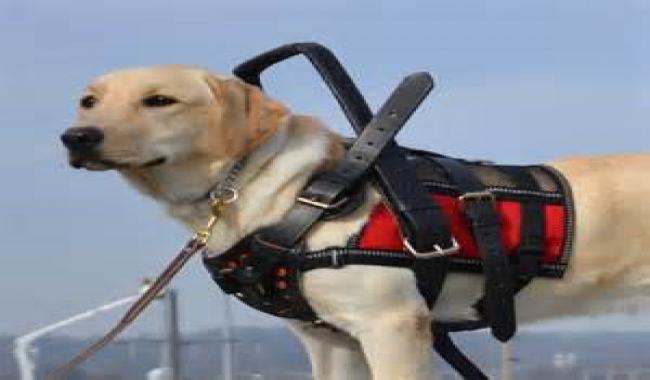
An assistance animal helps a person with a disability. An assistance animal may be a guide, signal, or other service animal individually trained to perform a specific task or tasks for the benefit of a person with a disability. It may also be an emotional support animal that provides comfort merely by being nearby. While dogs are the most common, other animals can also be assistance animals.
If a building has a no pets policy, the tenant or applicant with a disability may request a reasonable accommodation to have an assistance animal. If the disability is not obvious, the property owner or manager may ask for verification of the need for the animal. The housing provider cannot require the animal to be individually trained, certified, or registered.
An assistance animal is not considered a pet and the landlord may not impose any extra charges or security deposits.
Tenant Responsibilities:
- Care for the assistance animal;
- Have direct control of the animal at all times;
- Proper disposal of animal waste;
- May be liable for any damage caused by the animal, where proof exists.
Property owners/managers may reasonably regulate assistance animals on the premises. For example, owners/managers may prohibit dogs from swimming pools.
Service Animal: A Service Animal is a dog individually trained to do work or perform tasks for people with disabilities (for example, guiding people who are blind). A tenant or applicant does not need to request a reasonable accommodation to live with their service animal.
Property owners or managers may ask only the following two questions.
1. Is the dog a service animal required because of a disability?
2. What work or task has the dog been trained to perform?
Property owners or managers cannot ask about the person’s disability, require medical documentation, require a special identification card, require training documentation for the dog, or ask that the dog demonstrate its ability to perform the work or task.
(Visited 4,248 times, 1 visits today)







